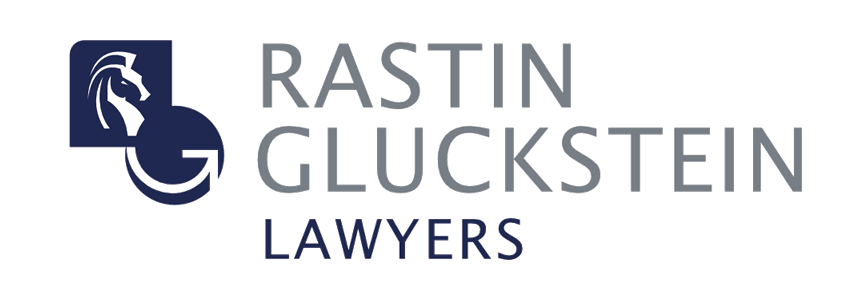Do you have a disability as a result of an accident?
Share your story with us today.
or call 1 (866) 308-7722. Our experts are here to guide you every step of the way.
Long Term and Short Term Disability Lawyers
Do I need a disability claims lawyer?
Is this you?
Your insurer first approved your claim for long-term disability benefits. They paid you for a while, then denied your claim or ended it.
Or is this you?
You have been struggling with your long-term disability insurer for months or even years. They denied your LTD claim, and you feel frustrated and unwell.
We can help.
If you face one or both of these problems, you can challenge the insurer's decision legally. The insurer may offer the option of going through an internal 'appeal' process first, but you don't have to do so.
A personal injury lawyer who understands disability insurance laws can help you with your long-term disability claim.
Our team knows what experts to hire, how to draft appropriate pleadings that protect your interests, how to prevent insurance companies from over-reaching, and how to position your case in a manner designed to get you the best possible outcome.
Long-term disability benefits.
You might have bought your long-term disability insurance on your own. You may also have coverage through a group benefits package from your employer.
Your long-term disability claim may come from a mortgage disability policy. Your bank may have required you to buy this policy when you financed your home or business.
Your disability might be caused by a physical injury resulting from a slip and fall, traumatic brain injury, or motor vehicle accident or come from a condition such as Chronic Fatigue Syndrome (CFS), Myalgic Encephalomyelitis (ME), or Fibromyalgia (FM). It could be the result of a heart, lung, immune, nerve, mental health, or other disabling condition.
No matter the disability or the type of coverage you have, you may still be entitled to LTD benefits, even if your insurer says you are not.
Long-term disability insurance.
What is a long-term disability insurance policy?
Long-term disability policies provide income replacement for those unable to work because of illness, injury, or an accident. If you cannot work for an extended period, you may qualify for benefits through your insurer.
Every long-term disability insurance policy is different but have certain things in common. For example, to be approved for long-term disability benefits, you must meet the qualifying criteria in your insurance policy. Essentially, you will need to meet the definition of “disability” as it is defined in your insurance policy.
Long-term disability insurance helps replace some of your lost wages when you cannot work because of an injury or illness.
Often, your employer provides long-term disability as a benefit. Depending on the group benefits program, you may or may not have to pay all or part of the premiums yourself. Still, you can purchase stand-alone long-term disability coverage directly from insurance companies offering the product.
What kinds of disabilities do long-term disability insurance policies cover?
When people experience physical disabilities, it is generally easier to “see” the disability. For example, wearing a prosthesis, using a cane or walker, having internal fixation hardware (visible on x-rays), or having disfiguring scars that impact you psychologically, are clear signs of disability.
When a disability is not “visible”, however, it can be challenging to prove that someone is struggling. This includes, for example, mental health problems or chronic pain. As a result, it may be more difficult to persuade the insurer, or a judge or jury, that the claimant cannot work. Greater reliance may need to be placed on the claimant’s ‘credibility’ and the strength of their work history.
Disability claims.
What should I do if my long-term disability benefits are denied?
Once you submit your long-term disability application, your insurance company may approve your LTD benefits claim if in the opinion of their claims assessors, you are meeting the disability requirements for the benefits sought. LTD insurance benefits may end, however, if the insurer no longer considers you to be disabled. This can happen if ongoing medical proof of disability is absent, or if the policy requirements for disability change after a period of time – usually one or two years – and the insurer no longer considers you to be disabled under the changed definition of disability.
Once your LTD benefits stop, you are well-advised to contact a lawyer. Your LTD insurance company’s decision to terminate your benefits can be legally challenged, which means that your insurer does not necessarily ultimately decide if or when your LTD benefits should end.
Act now.
Do not wait to talk to a long-term disability lawyer about your claim.
If your LTD claim is valid and leads to a settlement or judgment, the legal fees that we charge will come from that settlement or judgment. We will not charge you if we cannot obtain compensation for you. And, of course, there is never a charge for our consultations, whether or not we take your case.
Get your free consultation with a personal injury lawyer.
A no-obligation free consultation with Gluckstein Lawyers is only a phone call away. During the call, our LTD lawyer will discuss your situation with you.
Based on what you share, you will be advised whether our firm can help you challenge the insurer’s claim denial. We will always be direct and honest with you. If we cannot help you, we will explain why.
Our long-term disability lawyers in Toronto, Ottawa, Niagara, and Barrie help clients all over Ontario. We are here to work with you. Contact our nearest office to set up your free consultation.
Related Expertise.
Disability Claims FAQs.
- Who Can Apply for the Canada Disability Benefit (CDB)?
- To be eligible for the Canada Disability Benefit (CDB), the applicant must be between 18-64 years old, be approved for the Disability Tax Credit, and have filed income tax returns in the previous year. Get More Information
- What is Surveillance in Long-Term Disability Insurance?
-
Surveillance in the context of Long-Term Disability (LTD) insurance refers to the practice where insurance companies may conduct covert monitoring and observation of claimants to investigate the validity of their disability claims. This surveillance is typically carried out by professional investigators who gather visual evidence, such as photographs or videos, to assess the claimant's activities and functional limitations. Here are key points to understand about surveillance in LTD insurance:
- Purpose: The primary purpose of surveillance is to verify the extent of a claimant's disability and ensure that the reported limitations align with their actual activities. Insurance companies use surveillance as a tool to prevent fraud, confirm the accuracy of claims, and protect the integrity of the LTD system.
- Activities Monitored: Surveillance may involve monitoring various aspects of a claimant's daily life, including physical movements, interactions with others, engagement in recreational activities, and participation in events that could indicate the level of disability.
- Covert Nature: Surveillance is typically conducted covertly, meaning that the claimant is not aware that they are being monitored. This approach aims to capture the claimant's behavior and activities in their natural state without influencing their actions.
- Legal Compliance: Surveillance activities must comply with legal regulations and privacy laws to ensure that the rights of the claimant are respected. Investigators must adhere to ethical standards and obtain evidence lawfully.
- Impact on Claims: The results of surveillance can influence the outcome of an LTD claim. If the surveillance footage contradicts the claimant's reported limitations or suggests misrepresentation of disability, the insurance company may use this information to deny or terminate benefits.
- Frequency: Surveillance is not conducted continuously for all claimants but is often employed selectively based on specific factors, red flags, or suspicions raised during the claims process.
- Balancing Privacy and Investigation: While surveillance is a legitimate tool for insurance companies to verify claims, it raises concerns about privacy invasion and the potential misinterpretation of normal activities as evidence of fraud. Claimants have the right to challenge surveillance findings if they believe their disability status has been misrepresented.
Understanding the role of surveillance in LTD insurance can help claimants navigate the claims process effectively, ensure transparency in their interactions with the insurance company, and seek legal advice if they have concerns about the handling of surveillance activities in relation to their disability claim.
Get More Information
- Purpose: The primary purpose of surveillance is to verify the extent of a claimant's disability and ensure that the reported limitations align with their actual activities. Insurance companies use surveillance as a tool to prevent fraud, confirm the accuracy of claims, and protect the integrity of the LTD system.
- How Much Money Can I Get From My Long-Term Disability Benefits?
-
The amount of money you can receive from Long-Term Disability (LTD) benefits in Ontario is influenced by various factors, including the terms of your specific LTD policy, your pre-disability earnings, and the duration of your disability. Here are key points to consider regarding LTD benefits in Ontario:
- Percentage of Pre-Disability Earnings: LTD policies typically provide a percentage of your pre-disability earnings as benefits. This percentage can vary but commonly ranges from 50% to 70% of your pre-disability income.
- Maximum Benefit Amount: Most LTD policies have a maximum monthly benefit amount, which caps the total benefits you can receive each month. This maximum amount is determined by the terms of your policy.
- Duration of Benefits: The duration for which you can receive LTD benefits varies and is specified in your policy. Some policies provide benefits until retirement age, while others have a limited benefit period (e.g., two years, five years).
- Integration with Other Benefits: LTD benefits may be integrated with other disability benefits you receive, such as Canada Pension Plan Disability (CPP-D) benefits or workplace pensions. The total amount you receive from all sources may be subject to offsets or reductions.
- Tax Considerations: LTD benefits in Ontario are generally considered taxable income. However, if you paid the premiums for the LTD policy with after-tax dollars, a portion of the benefits may be tax-free.
- Cost-of-Living Adjustments: Some LTD policies include cost-of-living adjustments to account for inflation, ensuring that the purchasing power of your benefits is maintained over time.
- Return-to-Work Provisions: Many LTD policies include provisions for partial disability benefits if you can return to work on a part-time basis or in a reduced capacity. These provisions may affect the amount of benefits you receive.
To determine the specific amount of money you can receive from LTD benefits in Ontario, it is essential to review your LTD policy documents, understand the terms and conditions of the policy, and consult with the insurance provider or a legal expert specializing in disability insurance claims. They can provide detailed information on benefit calculations, limitations, and any additional factors affecting the amount of LTD benefits you are eligible to receive.
Get More Information
- Percentage of Pre-Disability Earnings: LTD policies typically provide a percentage of your pre-disability earnings as benefits. This percentage can vary but commonly ranges from 50% to 70% of your pre-disability income.
Disability Claims Legal Team.
Blog & News.
-
Why Should You Apply for the Canadian Disability Tax Credit?
A famous hockey player once said, "You miss 100 percent of the shots you don't take." When you see an opportunity, on or off the ice, it's worth remembering that nothing ventured means nothing gained....Read Full Story -
Gluckstein Lawyers Featured in 2025 Canadian Legal Lexpert Directory
We are thrilled to announce that nine of our esteemed Gluckstein Lawyers have been recognized as Leading Legal Practitioners across Canada in the 2025 Canadian Lexpert Directory. This year, we are esp...Read Full Story -
Court Ruling a Boon to Transparency
Personal injury lawyers acting for disabled clients are forced to routinely navigate a myriad of insurance company procedural roadblocks erected to make it more difficult for legitimate claimants to r...Read Full Story -
Why Is Consistent Medical Treatment Important in Disability Cases?
A successful disability claim must include a chronological narrative of your medical history, treatments and diagnoses. That type of medical evidence can only be gathered through regular and ongoing m...Read Full Story -
What Constitutes a Personal Injury
A personal injury is when a person’s body, mind or emotions are damaged due to the negligence or intentional actions of another party. It is not limited to physical injuries but encompasses a wide ran...Read Full Story -
Gluckstein Lawyers Recognized in 2024 Canadian Legal Lexpert Directory
We are excited to announce that four of our esteemed Gluckstein Lawyers have been recognized as Leading Legal Practitioners across Canada in the 2024 Canadian Lexpert Directory.Charles Gluckstein (Per...Read Full Story
Awards.
Areas We Serve.
Tell us about your accident or injury. We can help.
At Gluckstein Lawyers, the initial meeting is free and without obligation on your part – and we never charge you legal fees until your claim is settled.


